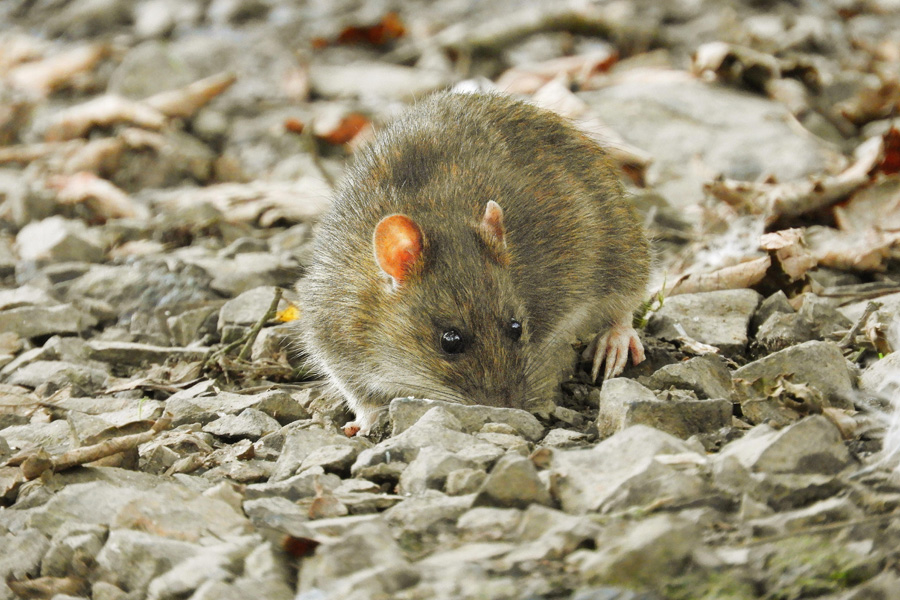Tested on wild rats, Generation Soft Bait is irresistible to rats and mice and simply delivers!
Real life results pay off in the field
Autumn is here and that's when rats and mouse populations spike
Pieter Van Der Westhuizen, UPL NZ Ltd Regional Manager Upper North Island, is an expert on rodent control. He’s an advocate of Generation Soft Bait, which, he says, contrary to what the name suggests, is definitely not a soft option. “It’s just a lot more tempting – but only to rodents, not to non-target animals. The original Generation Block Bait absolutely has its place, and some long-time users, but Generation Soft Bait has quantifiable advantages.
“From a rat’s perspective, the difference between a wax-encased block and soft bait, is like the difference between chewing on a candle or crayon and them eating peanut butter. Generation Soft Bait is totally irresistible to them.”
And, he’s prepared to put his reputation, and own pets, on the line in recommending it.
“I use Generation Soft Bait on my own property. I also have dogs and cats, aviaries and chickens. There have been absolutely no safety issues using Generation Soft Bait. There are no other products on the market like it.”
Tested on wild rats
The secret to the bait’s success, Pieter says, is that it was tested on wild populations – not just on lab rats. “That’s unique.
“It also took into consideration wild rat behaviour including the feeding ‘pecking order’. Rats are neophobic – they mistrust anything new. That’s why the attractiveness is vital.”
“And because the effects of Generation Soft Bait are delayed a bit, once the dominant rats have fed, other rats gain in confidence and follow their lead.”
He explains rats actively preferred Generation Soft Bait to other food sources in trials and it far outperformed any other baits.
He says the specially developed vegetable oil and crushed grain-based formulation gets rats’ attention faster, with the soft bait’s paper ensuring the tempting aroma disperses more widely. Pieter says it’s also very easy to deploy by skewering the plasticine-like bait on the metal rod, or wire, within the Generation bait station. “It’s quick, clean, and convenient.”
Highly effective in a single feed
The smallest non-dispersible bait on the market, Generation Soft Bait kills effectively and in a single feed. 2-3 g kills a rat and 0.3-0.4 g a mouse. To put that into perspective, a rat’s average daily dietary intake is 20 g/day while for a mouse it’s about 3 g/day.
Generation Soft Bait also won’t leak or melt and has very good moisture and heat tolerance which makes it practical in a wide range of farm, lifestyle, and residential applications. It also contains Bitrex, a bittering agent, that reduces the risk of consumption by non-target animals, which can be a concern using conventional rat baits for anyone with pets or farms dogs.
Generation Soft Bait is the most advanced anti-coagulant on the market, using difethialone 25 ppm as its active, which rodents can’t detect. There is no known genetic resistance among rodent populations.
Most serious mammalian pest ever known
Pieter says rodents probably cause much more damage than we’re aware of, including fires in vehicles and buildings due to electrical wires being chewed through. That’s on top of the more obvious damage to buildings, loss and contamination of feedstuffs, and posing a threat to native birds and other fauna.
Among the most serious mammalian pests known to man, the rodents are destructive, dirty, and disease-carrying. A single rat can produce 50 droppings and 50 mL of urine daily.
New Zealand has four species of introduced rodents – the Norway rat (Rattus norvegicus), the ship rat (Rattus rattus), the Polynesian rat (kiore), and the house mouse. The ship rat is the most common of the rats and also the smaller of the three rats.
The “native” kiore is larger but usually only found in the bush. The other rodents, Pieter says, most people will unfortunately have had some experience of, even if it’s just when the cat brings one inside.
He says evidence of even one mouse or rat probably means there’s a more significant problem and he recommends using bait proactively as the best strategy. “It’s going to save you money down the track.”
Tough rats
His advice is based on solid evidence. Rats are tough and can breed very quickly.
Rats are physically strong and very resilient and have been known to swim for up to two days in open water. They can jump a metre high, and 1.2 m horizontally.
Rats reach sexual maturity at 8 to 12 weeks and mate year-round, multiplying to almost plague-like proportions in a very short time. Population explosions are often linked to “mast years” for native trees and flowers seed production - around every 2-5 years. “Rats and mice just gorge on the seeds and numbers soar,” Pieter says.
To limit the potential for rodents to establish a home, or create a favourable environment, try to remove rubbish, clutter, food sources (including spilled grain) and vegetation.
Bait stations should be placed in rodent pathways and where rats will easily find them. Inspect the stations regularly to work out if enough baits have been placed and keep up a fresh supply.
Generation Soft Bait, and Generation bait stations are available exclusively from PGG Wrightson.
Read more online here.
